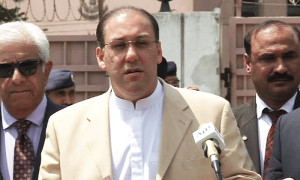patriot
Minister (2k+ posts)
Though a great majority of people, regardless of their religion, consider Darwin as the originator of the idea of evolution, Darwin (1809-1882) and his grandfather Erasmus Darwin were influenced by the work of Muslim scientists who lived centuries before them. For instance, John William Draper (1812-1883), first president of American Chemical Society, a contemporary of Darwin, and a former president of New York University summarizes the deliberately induced academic amnesia in the West. Draper acknowledges the fact that Muslims described the theory of evolution in their schools centuries before the West did:
I have to deplore the systematic manner in which the literature of Europe has contrived to put out of sight our scientific obligations to the Muhammadans. Surely they cannot be much longer hidden. Injustice founded on religious rancor and national conceit cannot be perpetuated forever.(Draper, John William. The Intellectual Development of Europe, p. 42.)
[Christian] theological authorities were therefore constrained to look with disfavor on any attempt to carry back the origin of the earth to an epoch indefinitely remote, and on the Muhammadan theory of evolution which declared that human beings developed over a long period of time from lower forms of life to the present condition. Sometimes, not without surprise, we meet the ideas with which we flatter ourselves with having originated our own times. Thus our modern doctrine of evolution and development were taught in their [Muslim] schools. In fact they carried them much farther than we are disposed to do, extending them even inorganic and minerals. (The History of the Conflict between Religion and Science, John William Draper, pp. 118, 187-188.)
Ironically, this Western amnesia regarding the scientific contribution of muslims coincided with the decline in Muslim world. By abandoning rational thinking and scientific methodology which is according to Quran is the necessary condition for being a muslim, they followed dogmas and story tellers.
Muslim scientists and philosophers of the medieval period had no qualms in accepting evolution as a divine system for creation.
For instance, the prominent Muslim polymath, philosopher and sociologist Ibni Khaldun (1332-1406), after a paragraph about the origin of human species, reminds the reader with a verse describing the deterministic nature of Gods system: You will never find a change in Gods system.
In his famous book Muqaddimah, Ibni Khaldun proposes a theory of evolution starting from minerals. Minerals, according to Ibn Khaldun, evolve and become seeded and seedless plants. Plants evolve and reach to their zenith with palm trees and vines. The evolution continues with snails and shelled sea animals. The diversification in animal kingdom reaches the zenith of creation by gradual evolution into human beings with consciousness and thinking skills.
According to Ibn Khaldun, monkeys are the link between animals and the first stage of humanity. Ibn Khaldun presents the theory of evolution by using scientific language, arguing that the essence of creation (in modern terminology: genetic code) passes through various changes (mutations) generating one species after another.
In addition to these, Muhammad al-Haytham (965-1039), who is known in the West by the name Alhazen, defends human evolution starting from minerals, plants, and animals in Kitabal Manazer, his book on optical science. Prominent leaders of Sufism such as Ibn Arabi (1165-1240) and Jaluluddin Rumi (1207-1273) also had no problem in accepting the idea of creation through evolution, an idea which was commonly held among Muslims. The Muslim Geologist al-Biruni (973-1048) in his book Kitab al-Jamahir also asserts that humans are created after long periods of evolution from simple organisms through natural selection.
Unfortunately, violent suppression of free speech and enforcement of anti-Quranic apostasy law by Muslim rulers and their hand-picked scholars plunged the Muslim world into a dark age. Great Muslim scientists and philosophers such as Ibn Khaldun, Ibn Sina, and Ibn Rushd were later condemned as heretics and apostates.
At present, we Muslims appear to have lost our ability to grasp the fact that we are living in a dark age .
15:26 We have created the human being from hardened clay of aged mud.
71:14 While He created you in stages?
71:17 God made you grow from the earth as plants.
I have to deplore the systematic manner in which the literature of Europe has contrived to put out of sight our scientific obligations to the Muhammadans. Surely they cannot be much longer hidden. Injustice founded on religious rancor and national conceit cannot be perpetuated forever.(Draper, John William. The Intellectual Development of Europe, p. 42.)
[Christian] theological authorities were therefore constrained to look with disfavor on any attempt to carry back the origin of the earth to an epoch indefinitely remote, and on the Muhammadan theory of evolution which declared that human beings developed over a long period of time from lower forms of life to the present condition. Sometimes, not without surprise, we meet the ideas with which we flatter ourselves with having originated our own times. Thus our modern doctrine of evolution and development were taught in their [Muslim] schools. In fact they carried them much farther than we are disposed to do, extending them even inorganic and minerals. (The History of the Conflict between Religion and Science, John William Draper, pp. 118, 187-188.)
Ironically, this Western amnesia regarding the scientific contribution of muslims coincided with the decline in Muslim world. By abandoning rational thinking and scientific methodology which is according to Quran is the necessary condition for being a muslim, they followed dogmas and story tellers.
Muslim scientists and philosophers of the medieval period had no qualms in accepting evolution as a divine system for creation.
For instance, the prominent Muslim polymath, philosopher and sociologist Ibni Khaldun (1332-1406), after a paragraph about the origin of human species, reminds the reader with a verse describing the deterministic nature of Gods system: You will never find a change in Gods system.
In his famous book Muqaddimah, Ibni Khaldun proposes a theory of evolution starting from minerals. Minerals, according to Ibn Khaldun, evolve and become seeded and seedless plants. Plants evolve and reach to their zenith with palm trees and vines. The evolution continues with snails and shelled sea animals. The diversification in animal kingdom reaches the zenith of creation by gradual evolution into human beings with consciousness and thinking skills.
According to Ibn Khaldun, monkeys are the link between animals and the first stage of humanity. Ibn Khaldun presents the theory of evolution by using scientific language, arguing that the essence of creation (in modern terminology: genetic code) passes through various changes (mutations) generating one species after another.
In addition to these, Muhammad al-Haytham (965-1039), who is known in the West by the name Alhazen, defends human evolution starting from minerals, plants, and animals in Kitabal Manazer, his book on optical science. Prominent leaders of Sufism such as Ibn Arabi (1165-1240) and Jaluluddin Rumi (1207-1273) also had no problem in accepting the idea of creation through evolution, an idea which was commonly held among Muslims. The Muslim Geologist al-Biruni (973-1048) in his book Kitab al-Jamahir also asserts that humans are created after long periods of evolution from simple organisms through natural selection.
Unfortunately, violent suppression of free speech and enforcement of anti-Quranic apostasy law by Muslim rulers and their hand-picked scholars plunged the Muslim world into a dark age. Great Muslim scientists and philosophers such as Ibn Khaldun, Ibn Sina, and Ibn Rushd were later condemned as heretics and apostates.
At present, we Muslims appear to have lost our ability to grasp the fact that we are living in a dark age .
15:26 We have created the human being from hardened clay of aged mud.
71:14 While He created you in stages?
71:17 God made you grow from the earth as plants.
Last edited:


































